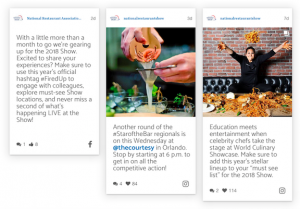26% of adults in the United States have some type of disability. Their annual disposable income is nearly $500 billion.
At Acquia’s Engage Boston conference this week, the company unveiled a new and possibly unique brand positioning. It’s making web accessibility for people with disabilities the focus of its marketing and a larger part of its technology.
As the conference opened, the company announced it had purchased Monsido, a tech platform that automates finding and fixing website features that aren’t in compliance with international Web Content Accessibility Guidelines (WCAG).
Then in the opening general session, co-founder and CTO Dries Buytaert and CMO Jennifer Griffin Smith focused much more on accessibility than AI. Adding to this, the conference keynote was given by Haben Girma, a disability rights lawyer who is also the first deafblind person to graduate from Harvard Law School.
While this focus is a good thing in terms of helping people, the bottom line is still the bottom line. So what’s in it for them?
“It’s doing good and it enables our company to grow,” Smith said in an interview. “If you’d have asked me in my last five CMO roles, ‘Did accessibility and creating a safe future feature high on my list of building a website?’ The answer is no and that’s shame on me because actually I’m losing probably 20% of my web visitors [because of that]. So where the money comes in is first of all, I can differentiate myself. Hopefully, that means I can actually rise up to the top of the awareness stack and get more people to want to talk to Acquia.”
Optimizing your website for people with disabilities is not an exercise in altruism. This is a large and underserved audience segment: 26% of adults in the United States have some type of disability. Their annual disposable income is nearly $ 500 billion. In the U.K. 22% of the total population have a disability. They and their families are a $ 288 billion market, according to We Are Purple, a U.K. non-profit supporting people with disabilities. Globally, disabled people, on their own, have $ 1.15 trillion in annual disposable income, according to the same report.
Furthermore, optimizing for this via things like simpler layouts, better contrasting color schemes, clearer directions and captioned video materials, makes websites operate better for everyone.
“It definitely means that the website is better,” said Smith. “And as Haben said, if you innovate with that in mind, you actually create a better experience for everybody because things like auto-captioning are super useful, even to people who aren’t hearing impaired. Say you’re in a meeting and need to find out something in a video. You don’t want the volume on.”
Accessibility is definitely a brand differentiator. While it’s no problem to find a huge number of tech companies with major, well-funded philanthropic efforts, it’s difficult to think of one that has made it a core brand value.
The post Acquia sees web accessibility as a good thing and a brand differentiator appeared first on MarTech.
MarTech(4)
Report Post



